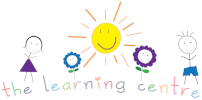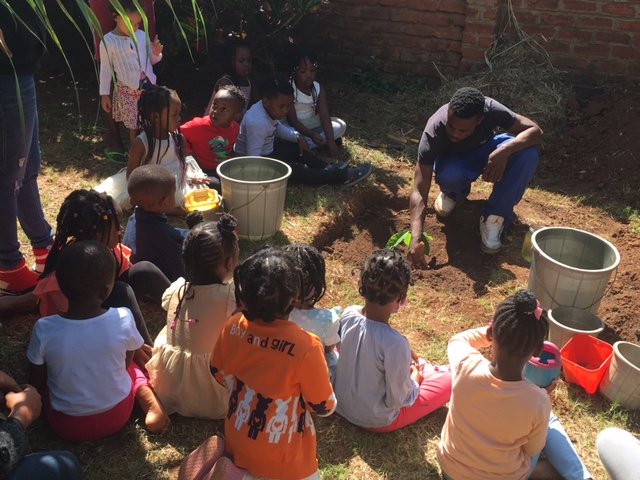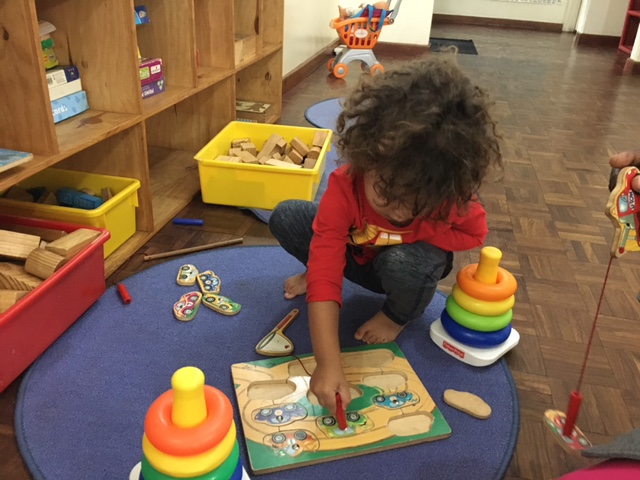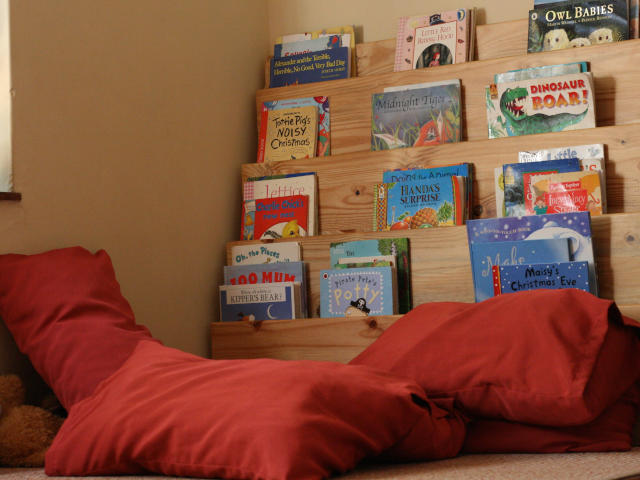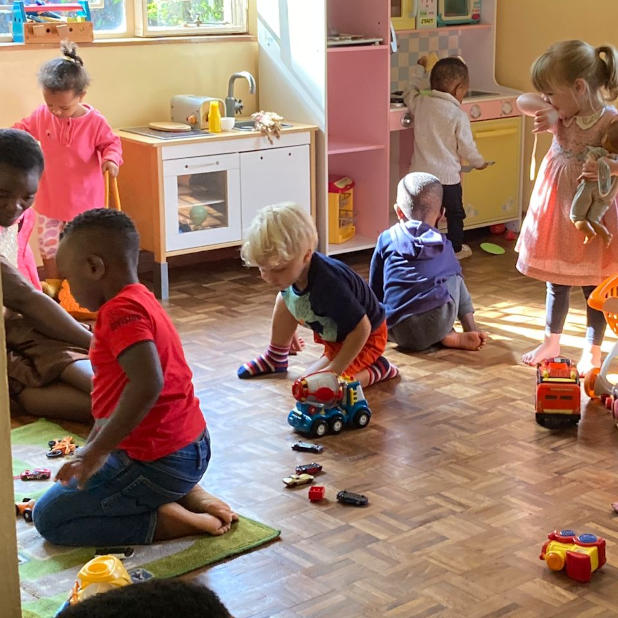What will my child learn in the Early Years?
At this stage of their learning, your child will be mainly learning through play-based activities. They will also be learning about routine and developing early literacy and maths skills, learning about the world around them and learning social skills.
The importance of play
Your child will begin to learn by doing things for themselves, by exploring and investigating, watching and listening, talking and discussing, creating and communicating – in other words, playing. Play is children’s work and playing hard is very tiring! Play can also be very messy as your child will be learning both indoors as well as outdoors with sand, water, paint, mud, leaves and so on, so you can expect some mucky clothes at the end of the day!
The Early Years Foundation Stage
The Early Years Foundation Stage (EYFS) is broken down into three prime aspects and four specific areas of learning. The three prime aspects of learning are:
Personal, Social and Emotional Development
One of the main aspects of your child’s time at nursery will be a focus on their personal, social and emotional development. They will be encouraged to develop positive relationships, to play with a variety of friends and to understand the feelings of others. There will be opportunities to build confidence and self-awareness, and also to manage their feelings and behaviour.
Physical Development
Your child will be given lots of opportunities to move in different ways, for example, running, jumping, balancing and playing with balls. Another important aspect of physical development at this stage is learning to hold and use tools such as scissors, pencils and brushes. Your child will also begin to understand how to look after themselves and be healthy.
Communication and Language
Communication is a key area of your child’s learning in nursery. They will spend lots of time sharing rhymes, songs, stories and playing games to develop their speaking and listening skills. They will be encouraged to learn to listen carefully, to develop concentration, to respond to questions and instructions, to share ideas and experiences and to take part in conversations.
In addition to these three prime aspects of learning, there are four specific areas:
Literacy
The ‘Communication’ section above outlines some activities to develop speaking and listening skills. In addition to sharing lots of stories, your child will probably be encouraged to handle and look at books independently and to begin to learn about how stories are structured. There will be opportunities for your child to recognise their own name. Your child will be encouraged to draw, paint and colour to develop control and hand-eye co-ordination. They may begin to learn to copy the letters in their name.
Mathematics
At nursery, your child will be given many opportunities to explore numbers and shapes in their play. For example, they may be encouraged to count objects they are playing with and to compare two groups of objects. They will probably begin to represent numbers using their fingers, marks on paper or pictures.
Understanding the World
Your child will learn about the world around them and they will be encouraged to use simple technology and equipment.
Expressive Arts and Design
Finally, imagination and creativity are explored and developed in the area of expressive arts. Your child will explore different media and materials and be encouraged to use their imagination in a range of different experiences.
Most of the time your child will be learning all seven areas of learning together, so if they spends lots of time in the sand area there’s no need for concern! They may well be covering all kinds of important learning: working with different materials; finding out about shape, quantity and volume; creating imaginative worlds; feeling different textures; and even developing motor skills and strength for writing!
